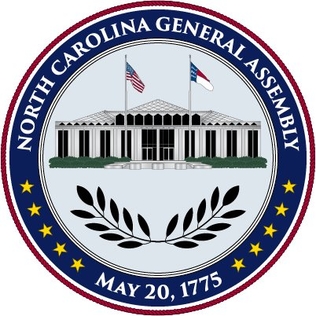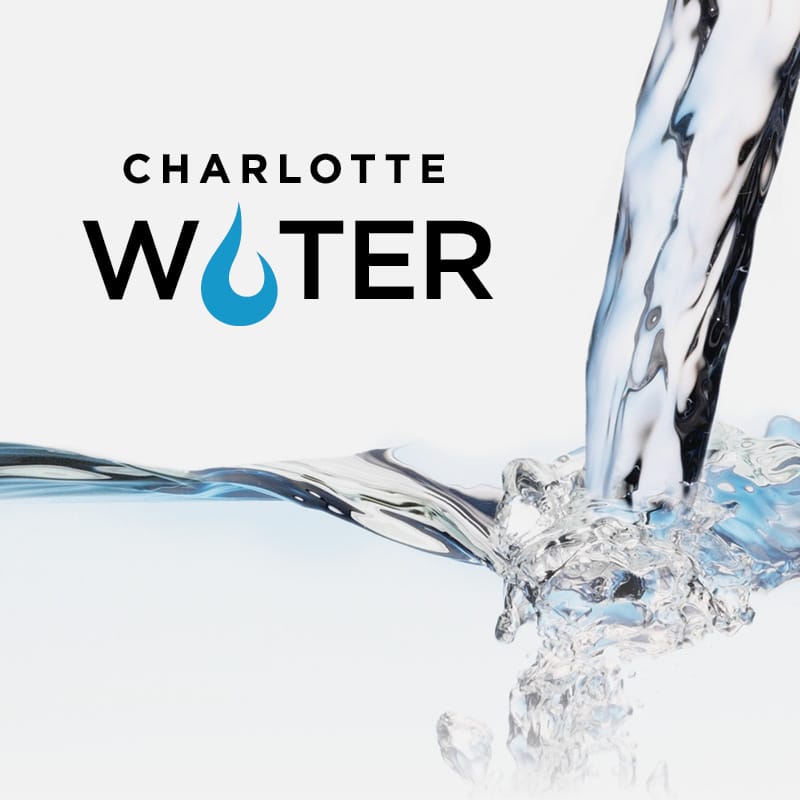Two For Tuesday | September 17, 2024
#1: NC General Assembly Overrides Veto, Adopts Major Regulatory Reform Measure

Late last week SB 166, the 2024 Building Code Regulatory Reform Bill, became law. This marked the culmination of significant efforts by the North Carolina Home Builders Assocation (NCHBA) and the North Carolina Realtors® (NCR) on behalf of their respective members. The bill had previously been vetoed by Governor Cooper on July 5th. The Constitution of North Carolina provides that a gubernatorial veto can be overridden by a 3/5 vote of each chamber of the members of the House and Senate present and voting.
Senator Dave Craven (R-Randolph) worked tirelessly to ensure the override effort was successful in the Senate and we appreciate his leadership on this and many other issues of importance to the real estate industry. On the House side, Representatives Dean Arp and Mark Brody, both Union County Republicans, were also instrumental in shoring up affirmative votes. We also commend Senate President Pro Tem Phil Berger and Speaker Tim Moore for allowing the measure to come to a final vote.
This ambitious legislation comes on the heels of last year’s HB 488 which also was enacted by overriding Governor Cooper’s veto of that bill. Both of these laws provide the building community with additional regulatory relief and new opportunities to provide housing at a lower cost for prospective buyers.
Here’s a list of some of the key provisions:
- 1.1 Prohibits Certain Backflow Preventer Installations – Eliminates the requirement of existing utility customers to install backflow preventers at the customer’s expense, allows for the testing of residential backflow preventers no more frequently than every three years, and allows a licensed plumbing contractor the ability to test a backflow preventer.
- 1.2 Prohibits Duplicative Water Service Shut-Off Valve Requirements in Certain Residential Dwellings – Eliminates the need for a redundant shut-off valve between the valve in the meter box and before the required valve installed in the home.
- 1.3 Ensures Building Permit Fees Remain in Building Inspection Department – (Initially passed in HB 255 (2015) The language was altered contrary to the legislative intent of the 2015 provision; this correction restores that intent and only applies to inspection departments.
- 1.4 Expedite Residential Plan Review – Encourages local governments to conduct residential plan reviews within 15 business days as currently required by law by imposing a penalty of 10% of the total permit fee each day the review has not been completed starting on the 20th business day.
- 1.5 Clarifies Public Safety Issues for Withholding Building Permit or Certificate of Occupancy (C/O) – Specifies that local governments cannot withhold a C/O for landscaping or streetlights.
- 1.6 Clarifies Right of Entry as a Condition of Development Approval – Prohibits building inspectors from requiring unrestricted access to a property after construction as a condition of permit approval.
- 1.7 Prohibits Building Code Compliance Affidavits – Prevents the need for duplicative documentation when building to the residential building code.
- 1.8 Provides Consistent Local Government Curb and Gutter Design Standards – Allows the use of curb and gutter designs that are adopted by NCDOT within municipal jurisdictions to prevent concrete waste when providing driveway connections to the roadway within residential development.
- 1.9 Clarifies Ambiguous Sidewalk Requirements within the Extra Territorial Jurisdiction (ETJ) – Clarifies that local governments cannot require sidewalks in an ETJ unless the local government agrees to maintain the sidewalks they are requiring.
- 1.10 Technical Correction – Changes the word “section” to “subsection”.
- 1.11 Clarifies Requirements for Model Homes – Ensures water service to model homes that have sales offices, while maintaining compliance with the Americans with Disabilities Act (ADA).
- 1.12 Amends Performance Guarantee Release Procedures – Ensures the timely inspection of infrastructure and return of performance guarantees upon completion and acceptance.
- 2.1 Provides Building Code Consistency Amongst Local Jurisdictions – Ensures that the fire prevention code is applied consistently and uniformly within residential dwellings across the state.
- 2.2 Amends Fire Resistance Requirements for Townhome End Units – Clarifies fire resistance requirements for townhome end units.
- 2.3 Amends Ground Fault Protections for Sump Pumps Located in Crawlspaces and Basements – Prescribes rules allowing the placement of a GFCI to be better accessible in certain situations.
- 2.4 Provides Flexibility in Window Selection to Alleviate Limited Inventory within Supply Chain – Allows the builder the option of glazed or non-glazed windows at the top of a stairwell if certain conditions are met.
- 2.5 Exempts Electric Water Heaters from Elevation Requirements -Distinguishes between building code requirements concerning electric and gas water heaters.
- 2.6 Provides Additional Options for Insulation in Unvented Attics and Enclosed Rafter Assemblies – Instructs the Building Code Council to implement rules consistent with legislation passed in 2023.
- 2.7 Prescribes Rules for the Implementation of 3 and 4 Family Dwellings in the Residential Code – Instructs the Building Code Council to implement rules consistent with legislation passed in 2023 to immediately bring the construction of 3 and 4-family dwellings from the Commercial Code into the Residential Code.
- 2.8 GFCI Protection for RV Site Equipment – Advances a code amendment that is currently traversing the code council to be implemented quicker by way of this session law concerning ground-fault circuit-interrupter protection as it relates to receptacles serving recreational vehicles (RVs). This provision is urgently needed to help RV sites currently impacted from this code requirement.
- 2.9 Excludes Electric Vehicle Supply Equipment Load From Feeder and Service Load Calculations – Prevents a very costly mandated upsizing of electrical services to homes for future electric vehicle connections.
- 2.10 Amends Emergency Responder Communication Coverage Exception – This provision moves the exemption for Emergency Responder Radio coverage to one-story buildings not exceeding 12,000 sf.
- 3.1 Plumbing, Heating, and Fire Sprinkler Contractor Licensing Board and Electrical Licensing Board Attorney’s Fee Recuperation – Allows the licensing board the ability to recoup attorney’s fees to help offset the cost of action.
- 3.2 Amends Electrical Contractor’s Licensing Requirements – Increases the minimum voltage limits under the “Limited” license classification.
- 3.3 Fuel Gas Code Reference for Electrical Contractor Exemption – Clarifies the code reference in the North Carolina Fuel Gas Code.
- 3.4 Creates A Building Code Permit Technical Certification – Creates a professional registration for permit technicians in North Carolina.
- 3.5 Local Government Review of Seals of Design – Prohibits local governments from making administrative decisions on which design professional (architect or engineer) shall seal when reviewing plans.
- 4.1 Refines Stormwater Maintenance Fund Requirements – Clarifies changes made during the 2023 Long Session concerning the reimbursement of maintenance fees for privately held stormwater infrastructure.
- 4.2 Revises State Stormwater Operations and Maintenance Plan Recordation Requirements – Clarifies that stormwater operation and maintenance agreements must be referenced in the chain of title of a property in lieu of requiring that the entire agreement be provided on the final plat.
- 4.3 Permit Review Shot-Clock for NCDEQ Fast Track Sewer Program – Provides permit review and response efficiency within the North Carolina Department of Environmental Quality’s (DEQ’s) Express Sewer Program.
- 4.4 – 4.48 Various Amendments to Onsite Wastewater Statutes, Well Statutes, and Wastewater Rules – Makes various agreed-upon changes to onsite wastewater statutes, well statutes, and their associated rules.
- 4.49 Prohibits Public Water & Sewer Systems from Imposing Unauthorized Conditions and Implementing Preference Systems for Allocating Service to Residential Development – This provision clarifies that local governments cannot use their authority to allocate water and sewer to force applicants to agree to currently unlawful conditions. This provision does not create any additional unlawful conditions concerning residential development but only makes it clear that what is currently unlawful cannot be enforced through water and sewer allocation agreements or associated project scoring criteria. In short: Local governments cannot regulate indirectly what they cannot regulate directly (e.g. aesthetic controls).
- 4.50 Permit Review Shot-Clock for NCDEQ Public Water Program -Provides permit review and response efficiency within DEQ’s Public Water Supply Permitting Program.
- 4.51 Clarifies Scope of Public Swimming Pool Laws to Exempt Private Pools Offered for Use Through a Sharing Economy Platform – Provides relaxed regulations for swimming pools serving private dwellings that are part of a “sharing economy platform” such as Airbnb or Swimply.
- 5.1 Reorganizes the North Carolina Building Code Council – Creates a new building code council with jurisdiction over commercial and multifamily construction.
- 5.2 Miscellaneous Changes to Implement Building Code Council and Residential Code Council Reorganization – Various statutory conforming changes to carry forward changes to the Building Code Council.
My take: Several of the items listed above are technical in nature and you may think they don’t really affect what you do on a regular basis. The fact is all of these changes in the law are directed toward accomplishing one goal: providing the private sector the best opportunity to deliver housing in a timely and affordable manner. Over time many local governments have taken to tinkering with their ordinances and attempting to address any and all manner of concerns raised by certain segments of the community. That has resulted in a situation where all needs and wants became a priority with no established hierarchy. And as a wise man once told me, if everything is a priority nothing is a priority. This legislation does a lot to build on the progress from the previous year’s regulatory reform bill. Hats off to the Members of the General Assembly who supported it and to the advocacy teams from the NCHBA and NCR® who got it across the finish line.
#2: New Charlotte Water Design Manual Released

Charlotte Water has announced the long-anticipated launch of its new Design Manual, which became available yesterday. The new Design Manual may be used immediately and will be enforced beginning on February 1, 2025. You can find the new Design Manual at:
https://www.charlottenc.gov/water/DevelopmentBusiness/Design-Manual
They have included a feedback button for the new manual and are requesting your input. The current or “legacy” Design Manual may be accessed here.
To support a smooth transition, Charlotte Water will be hosting a series of review sessions. These are intended to provide high level changes and to address any questions customers may have. Information on these sessions will be posted as soon as it becomes available.
My take: The publication of this new manual comes following a multi-year process. Several real estate industry representatives currently serve on Charlotte Water’s Advisory Committee including NAIOP’s 2024 President, Dan Melvin with LandDesign, a REBIC member. Additional input was provided by the Home Builders Association of Greater Charlotte’s Land Development Council. Our hope is that this collaboration will result in more certainty for the industry. If you utilize the design manual and have additional thoughts or ideas for improvement, please reach out to me directly [email protected].
BACK TO LATEST NEWS

